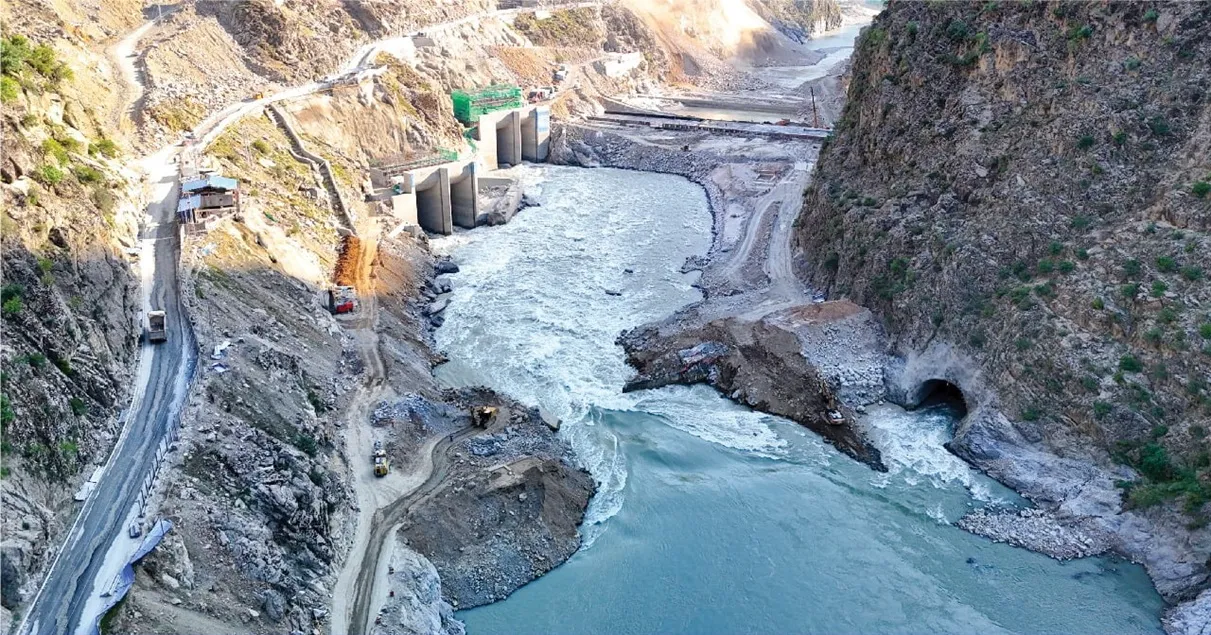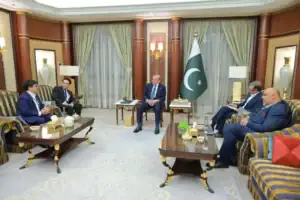Islamabad: Executive Committee of the National Economic Council (ECNEC) granted conditional approval for the Dasu hydropower project, now priced at a staggering Rs1.74 trillion—a 240% increase from its original estimate.
The project, initially approved at Rs479 billion, has now become one of the most expensive in Pakistan’s history, nearly matching the $6.7 billion cost of the Karachi-Peshawar railway line under the China-Pakistan Economic Corridor (CPEC).
The revised cost of the Dasu project now stands at $6.2 billion, with the per-unit generation cost climbing to Rs8.79, despite it being a hydropower-based project, traditionally considered among the cheapest energy sources.
READ MORE: 100+ Startups Shine at Pakistan Investor Summit 2025
The conditional approval is aimed at facilitating ongoing loan negotiations with foreign lenders, especially the World Bank, which has already extended $517 million and is in talks to offer another $1 billion in mixed concessional and commercial loans.
Additionally, the government plans to secure $400 million in commercial loans using World Bank guarantees and raise Rs350 billion domestically.
A Planning Commission committee is still expected to validate the project cost.
The drastic escalation has been attributed to delays in land acquisition, increased security costs due to attacks on Chinese contractors, and inefficiencies involving WAPDA, the Planning Commission, and local administrations.
However, no single party has been held accountable.
In a related decision, ECNEC approved the construction of a new border crossing at Wagah, India.
This follows an earlier decision to modernize crossing points at Torkham and Chaman, which are currently being built at a cost of Rs95.5 billion.
The Wagah post will be developed through competitive bidding, rather than a government-to-government contract, based on recommendations from the Planning Ministry and FBR, and guided by ADB procurement rules.
Additionally, 30 anti-smuggling checkpoints will be built along River Indus and in Balochistan at a cost of Rs15 billion.
Also Read: CPEC: Kohala Hydropower Project Seeks Extension of LoS
This move comes as the FBR acknowledged failures in traditional anti-smuggling measures, which have led to annual revenue losses of Rs750 billion. These new Digital and Mobile Enforcement Stations (DES) aim to integrate technology into border security and formalize trade.
Several other major development projects were also approved:
- Sindh Flood Emergency Rehabilitation Project Phase-II: Rs12.2 billion for restoring 146 km of flood-affected roads across four districts.
- Repair of 100 locomotives: Revised cost of Rs16 billion.
- Khyber Pakhtunkhwa rural road access project: Revised at Rs113 billion to improve access to markets, schools, and health services across 878 km.
- Mangi Dam project: Approved at a revised Rs19 billion, aimed at supplying 8.1 MGD of water to Quetta, addressing severe water shortages.
- Sindh Early Learning Enhancement Project: Worth Rs46.6 billion, funded by the World Bank and the Sindh government, this initiative aims to improve early education infrastructure and outcomes.
- 220kV Transmission Network Reinforcement: Approved at Rs11.3 billion for the Islamabad and Burhan areas to support growing energy demands and integrate power from the Tarbela 5th extension.
Read More: PAC Expresses Displeasure on Hydle Projects Delays
The ECNEC meeting, chaired by Deputy Prime Minister Ishaq Dar, reviewed 10 development projects worth a total of Rs2.1 trillion, underscoring the government’s push to boost infrastructure, energy security, border control, and educational reform despite fiscal pressures.









